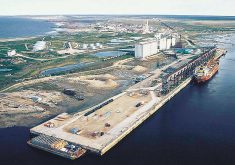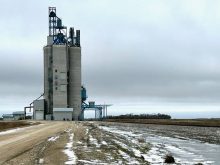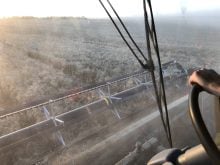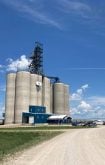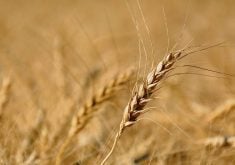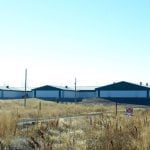New president:Sinclair
Harrison of Moosomin, Sask. has been elected president of the Hudson Bay Route Association (HBRA). Harrison, longtime president of the Farmer Rail Car Coalition and former president of the Saskatchewan Association of Rural Municipalities, was named to the position at a board of directors’ meeting in Virden following the HBRA’s 68th annual convention on April 15-16. He takes the helm from Arnold Grambo, who led the HBRA since 1994. Eldon Boon of Virden was named first vice-president. Jim Hallick of Sturgis, Sask. became second vice. – Staff
Read Also
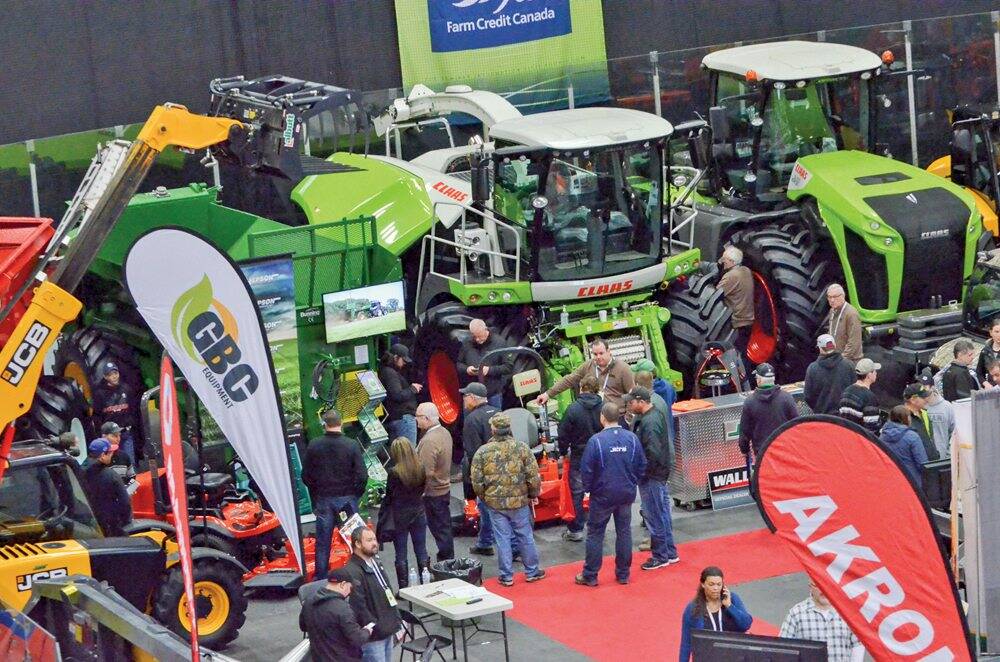
Local farm businesses, groups look forward to Manitoba Ag Days 2026
Most of agriculture is seemingly at Manitoba Ag Days each January: Manitoba agribusinesses and farm groups look forward to connecting with farmers at the 2026 show.
More flexible hours:New legislation
will allow Manitoba businesses to more easily introduce flexible work hours for employees, a Manitoba government release says. “Businesses have told us they want a streamlined process and employees have said they want the option of more flexible hours to balance their work hours with their home and family needs,” said Labour and Immigration Minister Jennifer Howard. Proposed changes to the labour code would allow for individual agreements between employers and employees to alter the standard hours of work (flex-time).
– Staff
Free well testing:The
Manitoba government is waiving the usual fees for having well water tested for bacteria until June 30 to allow people who depend on private wells or cisterns that might have been contaminated by flood waters to have them tested.
Manitoba Water Stewardship and Manitoba Health is also advising everyone who uses private water supplies including wells, cisterns or unfiltered surface-water sources affected by flooding to boil their water for at least one minute before consumption or use a safe alternative such as bottled water. – Staff Port project:Viterra Inc. has inked a deal to lease and operate the Montreal Port Authority (MPA) grain terminal. The Canadian Grain Commission-licensed transfer elevator operates year round and has a storage capacity of 262,000 tonnes. Located in the deepest inland seaport in North America, it has direct access to both CN and CP rail networks.
In a release, Viterra spokesman Bob Miller called it an “excellent strategic fit.” Meanwhile, MPA officials say the arrangement should bring more grain traffic through the port. –Staff Slow start to seeding:
Cool temperatures, 1 to 8 below normal, continued to hinder snowmelt and field drying over the past week, according to CWB weather and crop analysts. However, there was little precipitation (less than 10 mm) in most Prairie growing areas, which was a positive factor. No seeding activity has begun to date, but is expected to commence soon, provided conditions remain dry. By comparison, about four per cent of Prairie crops are typically seeded by this time. Last year, 12 per cent of the crop had been planted. – CWB Bulletin Bad winter:CP Rail is blaming “unusually severe” winter weather for its poor performance. “The first quarter was an extremely difficult winter with weather-related outages significantly constraining our capacity and our service to our customers,” CP CEO Fred Green said in a release.
CP’s total grain handle for the quarter was 99,400 carloads, down 12.2 per cent, while its traffic in sulphur and fertilizers was up 9.5 per cent at 48,500 carloads. The company, he said, is “intensely focused on improving network velocity and service reliability.”
– Staff Hard assets:Private capital investment in farming is expected to more than double to around $5 billion to $7 billion in the next couple of years, Chris Erickson, managing director of Boston-based farm consultancy HighQuest told Reuters.
“What we are seeing right now is a lot of interest from institutional investors, private capital, pensions and endowment foundations to invest in real assets. Farmland today globally provides a very interesting investment scenario based on global supply-and-demand fundamentals.”
What’s for dinner?:Move
over, beef. Camel meat could become the newest Australian export as early as 2012 if an Egyptian businessman is successful with his bid to open a slaughterhouse and meat-processing plant in a rural South Australian town. Magdy El Ashram’s ambitions would not only bring camel meat, which he says is healthier than beef, to dinner tables around the world, it would also reduce a feral camel population in the Australian outback that has caused serious ecological problems, and create up to 300 jobs in a place that badly needs them.


